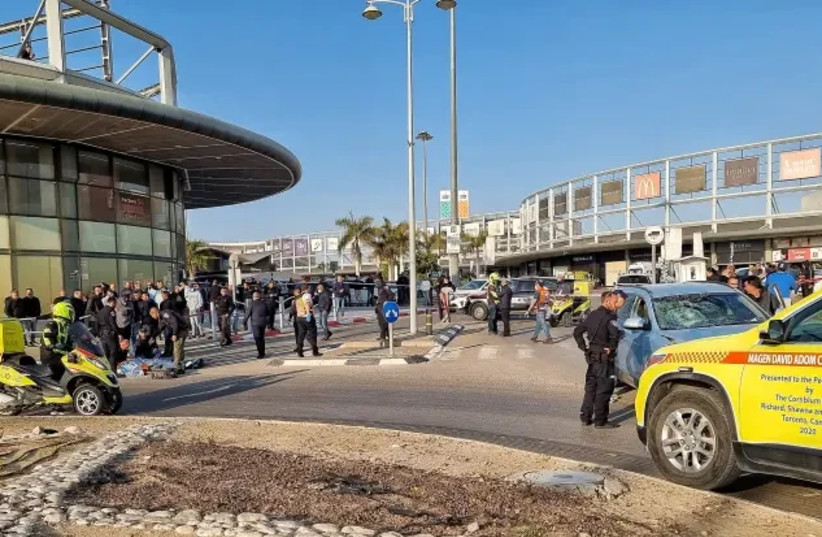Amid the new wave of terrorism striking Israel, including the shooting in Bnei Brak on Tuesday that claimed five lives, the government’s main mission for the foreseeable future can be summed up in two words: halt terrorism.
The Bnei Brak shooting was the third fatal attack in a week and brought the death toll to 11, the highest number of people killed by terrorists in recent years. Prime Minister Naftali Bennett held consultations with senior security officials, vowing to the citizens of Israel that his government and security forces will do all they can to fight terrorism “with persistence, diligence and an iron fist.”
Bennett said it “requires the security establishment to be creative and for us to adapt ourselves to the new threat and read the tell-tale signs of lone individuals, sometimes without organizational affiliation, and to be in control on the ground in order to thwart terrorism even before it happens.”
How should the government and security forces counter this new wave of terrorism? The first thing they must consider is profiling the apparently “lone-wolf” terrorists who carried out the three attacks in Beersheba on March 22 (four deaths), Hadera on March 27 (two deaths) and Bnei Brak on March 29. Discovering what motivated them and what terrorist group inspired their evil acts could help thwart future terrorism.
The attacks are believed to have been carried out primarily by supporters of the Islamic State terrorist group, which is in itself a new development. All were killed by alert bystanders and security personnel, however, their families and friends should be a good source of information about what drove them to commit such atrocities.

The Beersheba terrorist from the Bedouin town of Hura in the Negev was a school teacher who served four years in prison for plotting to join ISIS in Syria and was released in 2019. The two terrorists who carried out the Hadera attack were residents of the Arab city of Umm el-Fahm, while the Bnei Brak terrorist was identified as a 26-year-old from Ya’abad village, near Jenin.
Hamas and Islamic Jihad predictably praised the attacks, while Palestinian Authority President Mahmoud Abbas broke his silence and issued a rare condemnation of the Bnei Brak attack, emphasizing that “the killing of Palestinian and Israeli civilians only leads the situation to deteriorate.”
The attacks were roundly condemned by the states whose foreign ministers attended the Negev Summit convened by Foreign Minister Yair Lapid this week – the US, Egypt, the UAE, Bahrain and Morocco – as well as by other countries around the world.
Given all these considerations, it seems to follow that Israel should:
- Continue to boost security forces and keep them on high alert as well as tighten security at checkpoints and in urban centers throughout the country, especially as Muslims approach their month-long holiday of Ramadan that starts next week.
- Work together with the PA and friendly countries in the region to gather intelligence on ISIS operatives and other terrorist organizations in Israel, the West Bank and Gaza Strip.
- Demolish the homes of the terrorists as a punitive measure to deter future attacks.
- Demand that the PA stop its so-called “Martyrs Fund,” which pays monthly cash stipends to the families of Palestinian terrorists killed, wounded or imprisoned.
- Urge all citizens to be vigilant, particularly at sites that are vulnerable to terrorist attacks – markets, malls, synagogues, cafés and other places where crowds gather – as well as on public transportation throughout the country.
It should be stressed that in all the terrorist attacks in recent days, vigilant Israelis on the scene foiled what could have been a carnage. In Bnei Brak, police officer Amir Khoury – a Christian Arab – heroically paid with his own life as he fatally wounded the terrorist in a shootout.
Israelis are known to be the most resilient of people, and this is the time for that resilience, strength and standing together. It’s also a time for us all to put politics aside and support the government and security forces in all they are doing to halt terrorism.
As Bennett said, reassuringly, “The security forces of the State of Israel are the best in the world. They are up to the task and, as in the previous waves, we will prevail this time as well.”
